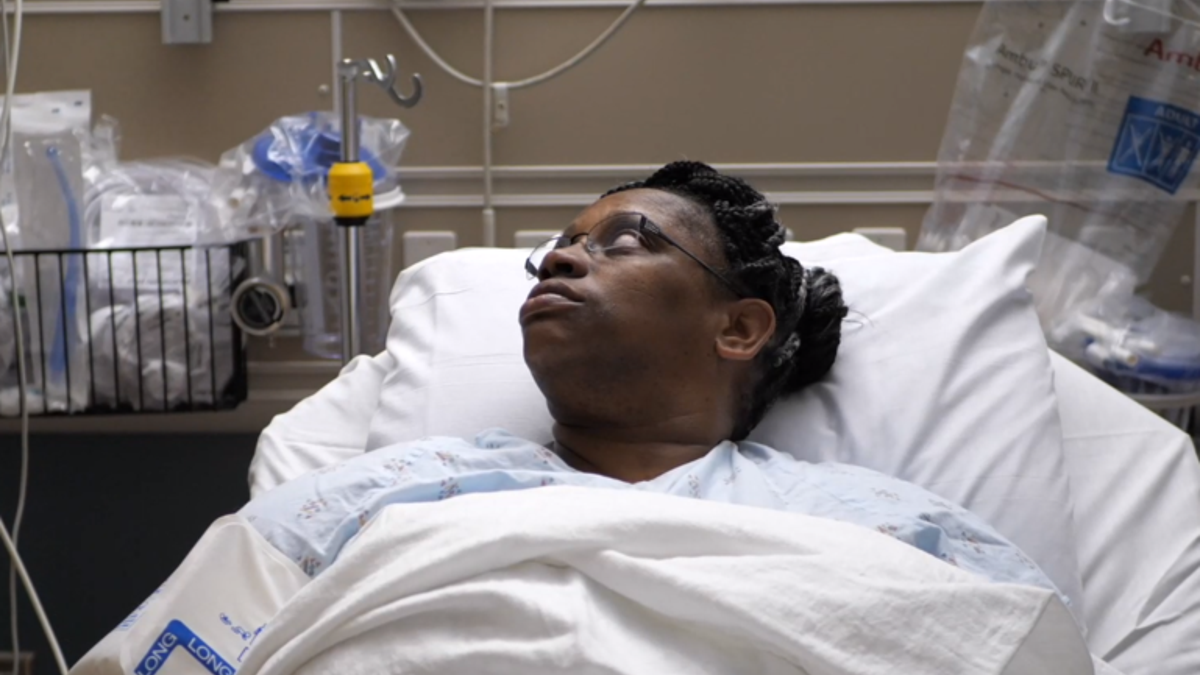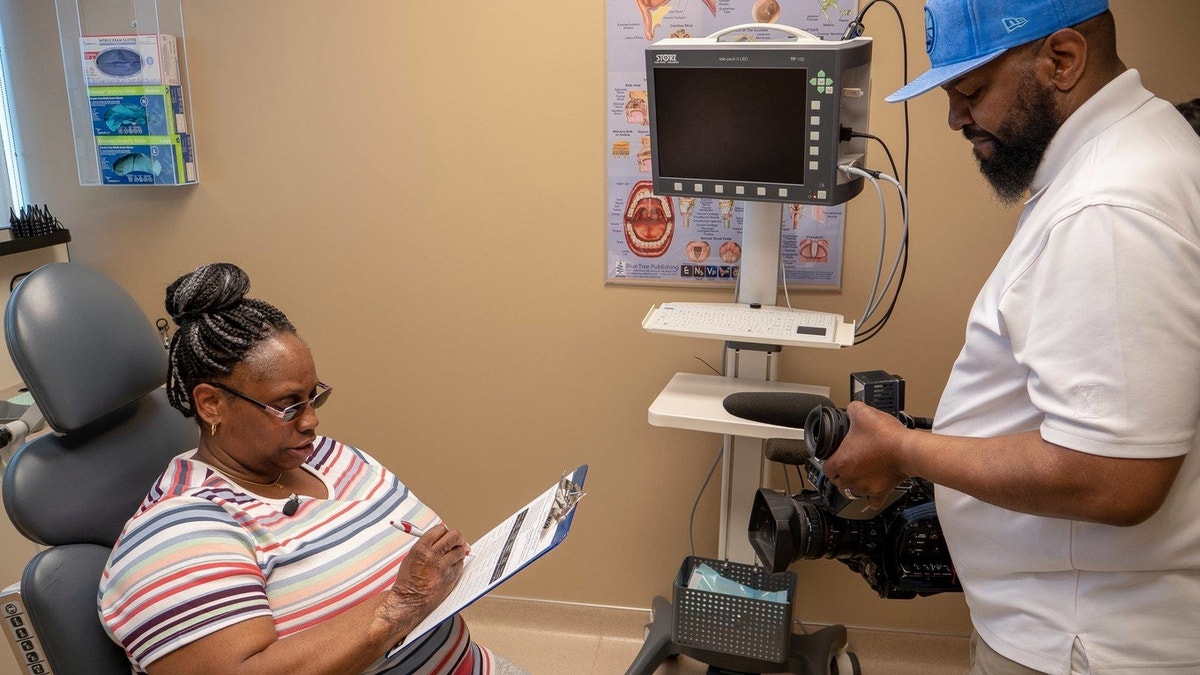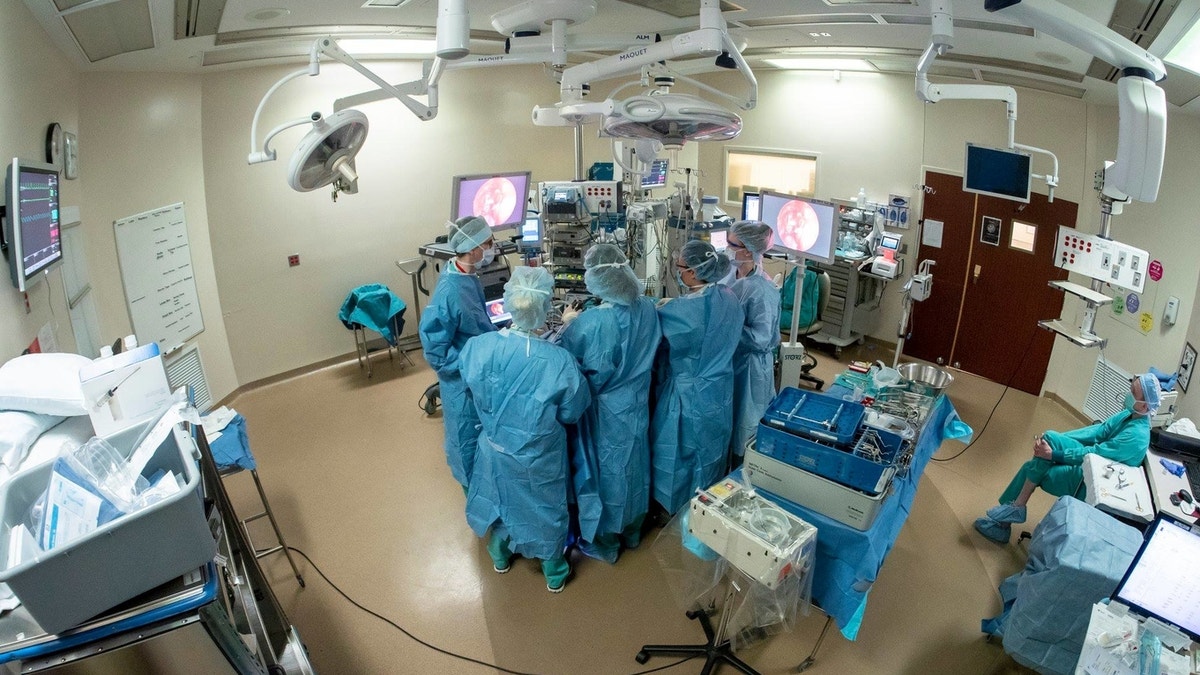
After experiencing a runny nose for 5 years, Kendra Jackson was finally diagnosed with a cerebrospinal fluid (CSF) leak this year. (Nebraska Medicine)
Kendra Jackson thought she had bad allergies — at least, that's what doctors told her when she complained of a runny nose.
"Everywhere I went I always had a box of Puffs, always stuffed in my pocket," Jackson of Omaha, Nebraska, told KETV. "[It was] like a waterfall, continuously, and then it would run to the back of my throat."
For years, Jackson had been seeing doctors and specialists looking for answers. The sneezing, coughing and constant nose tickle began shortly after she got into a car accident in 2013. She recalls hitting her head on the dashboard, which would explain her chronic headaches — but not the cold symptoms.
It wasn't until this year that Jackson learned the real reason her nose was always runny: she had a cerebrospinal fluid (CSF) leak. She was losing about a half-pint of fluid per day, KETV reports.
"[It was] like a waterfall, continuously, and then it would run to the back of my throat."
"Cerebrospinal fluid from her brain was leaking out of her nose," Nebraska Medicine wrote in a Facebook post on Friday.
According to the Cleveland Clinic, a CSF leak occurs when fluid around the brain travels through a hole "through the skull bone," typically as a result of a traumatic injury. Symptoms can include a runny nose, liquid in the ear, headaches and vision loss, among others.

Doctors at Nebraska Medicine surgically fixed Kendra Jackson's "potentially dangerous" condition in April. (Nebraska Medicine)
The condition is rare, and often underdiagnosed. About five in 100,000 people report CSF leaks every year, the CSF Leak Association, a U.K. charity to promote awareness for the condition, reports. Sometimes the CSF leak will repair itself with proper rest, but occasionally surgery is needed.
Nebraska Medicine rhinologist Dr. Christie Barnes and neurosurgeon Dr. Dan Surdell operated on Jackson a few weeks ago.

Nebraska Medicine rhinologist Dr. Christie Barnes and neurosurgeon Dr. Dan Surdell operated on Jackson a few weeks ago. (Nebraska Medicine)
"We [went] through the nostrils, through the nose," Barnes told KETV, explaining that a team of doctors used Jackson's own tissue as a plug to prevent fluid from spilling out. "We use angled cameras, angled instruments to get us up to where we need to go."
Jackson was thrilled when the procedure was over. Her head felt clear and she was finally able to put the tissues away. For the first time in five years, she was able to get a good night's sleep.
"I don't have to carry around the tissue anymore, and I'm getting some sleep," she told the news station.
Jackson returned to Nebraska Medicine for a follow-up appointment on Friday and doctors said she was recovering nicely.








































